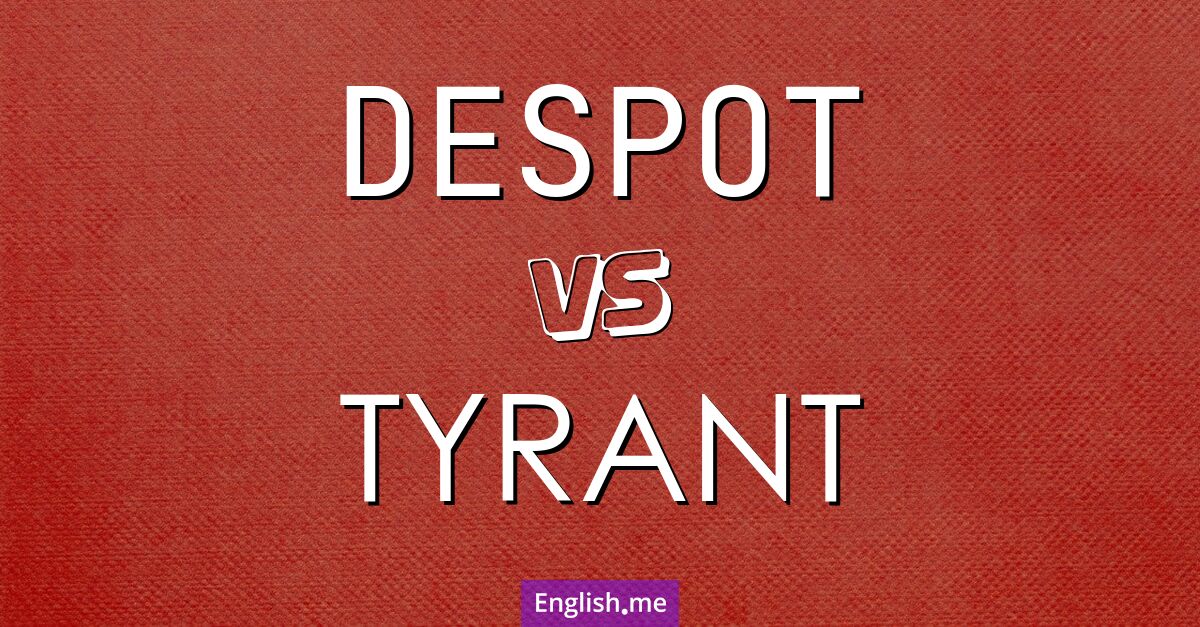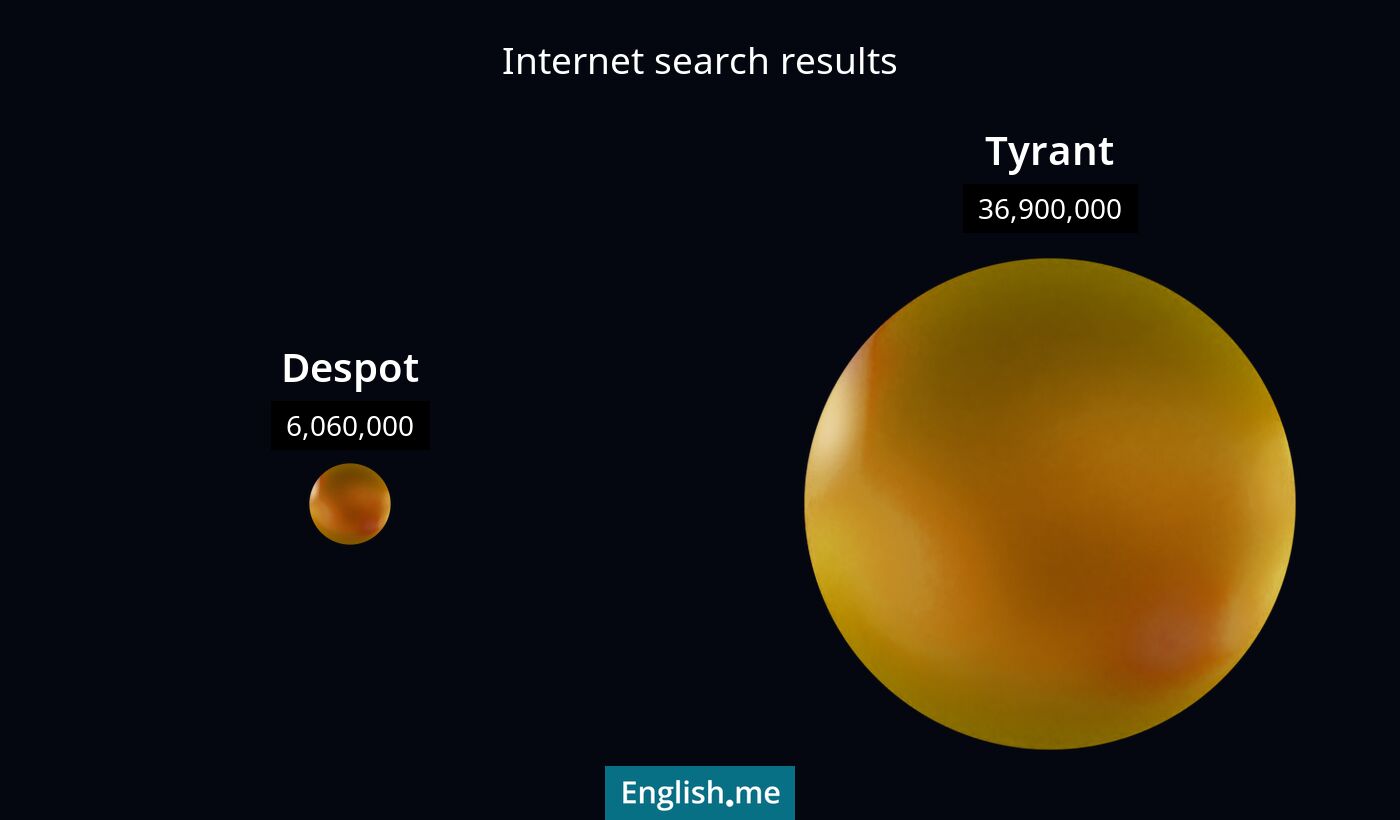"Despot" vs. "tyrant": exploring the fine line between power and oppression
Reviewed and edited by  Anwar Kareem 11/10/2024, 09:11
Anwar Kareem 11/10/2024, 09:11
English.me team member

 What is similar?
What is similar?
Both "despot" and "tyrant" refer to rulers who exercise power in a cruel or oppressive way and are often used interchangeably to describe autocratic leaders with absolute control who govern without regard for the welfare of their subjects.
 What is different?
What is different?
While both terms describe oppressive rulers, "despot" often carries a slightly more formal or historical connotation, sometimes referring to absolute rulers in historical contexts. "Tyrant" is often used more broadly and can also describe anyone who exercises power in a cruel or arbitrary manner, not just rulers.
 Which one is more common?
Which one is more common?

 Examples of usage
Examples of usage
Despot- The king became a despot, ruling with an iron fist and ignoring the needs of his people.
- As a despot, he centralized power and allowed no opposition to his rule.
- Throughout history, there have been many despots who have held absolute power over their nations.
- The dictator was considered a tyrant, feared by the citizens for his harsh policies.
- After years of oppression, the tyrant was finally overthrown by a popular uprising.
- He was known as a tyrant, ruling with cruelty and showing no mercy to his subjects.

 English
English español
español française
française italiano
italiano deutsche
deutsche 日本語
日本語 polski
polski česky
česky svenska
svenska Türkçe
Türkçe Nederlands
Nederlands